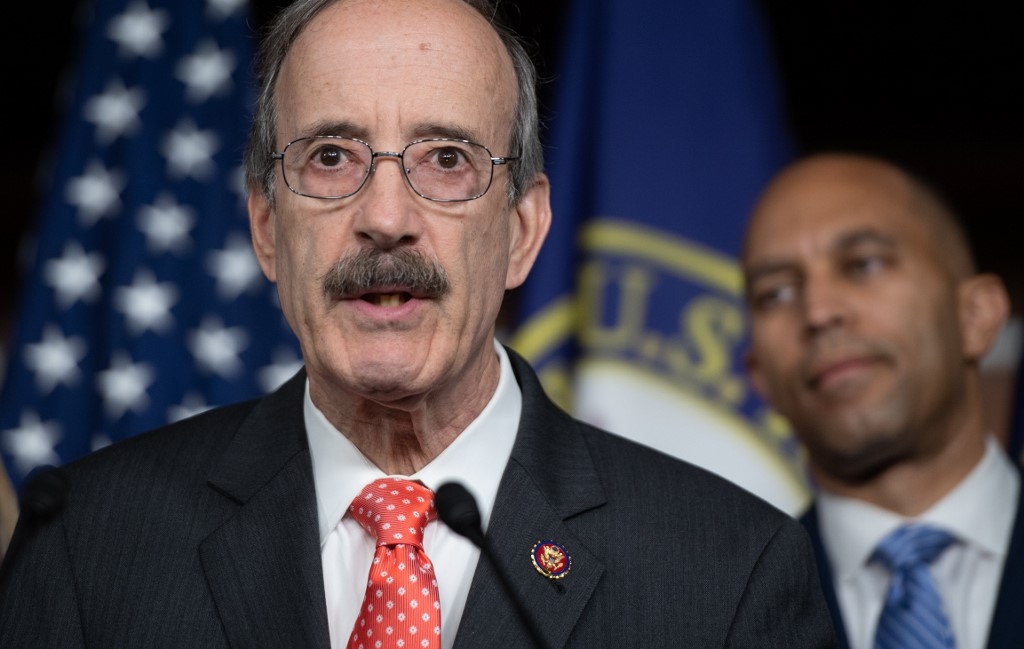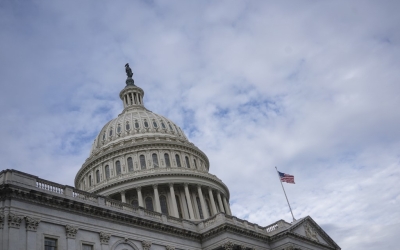'False, plain and simple': Trump administration accused of lying about Soleimani threat

The Trump administration has been accused of lying after the publication of a new report that undermined its reasoning for assassinating Iranian General Qassem Soleimani last month.
The chairman of the House Committee on Foreign Affairs said in a statement on Friday that President Donald Trump's official notification to Congress defending the 3 January strike failed to specify an "imminent threat" posed by Soleimani.
"This official report directly contradicts the president's false assertion that he attacked Iran to prevent an imminent attack against United States personnel and embassies," Democratic Representative Eliot Engel of New York said.
The Trump administration has argued that the drone attack was an urgent measure to protect American lives from an "imminent threat" in the region.
Soleimani was responsible for Iran's clandestine overseas operations and was often seen on battlefields guiding Iraqi Shia groups in the fight against the Islamic State (IS) group.
New MEE newsletter: Jerusalem Dispatch
Sign up to get the latest insights and analysis on Israel-Palestine, alongside Turkey Unpacked and other MEE newsletters
'The justification the president offered to the American people was false, plain and simple'
- Eliot Engel
Congress has not been satisfied with the White House's justifications, which brought the two adversaries near the brink of war.
Lawmakers have on multiple occasions asked the administration to provide a clear explanation about the "imminent threat" to which the US was responding.
"The president directed this action in response to an escalating series of attacks in preceding months by Iran and Iran-backed militias on the United States forces and interests in the Middle East region," the White House's Friday report to Congress read.
"The purpose of this action [was] to protect the United States personnel, to deter Iran from conducting or support further attacks against the United States forces and interests, to degrade Iran's and Quds Force-backed militias' ability to conduct attacks, and to end Iran's strategic escalation of attacks on, and threats to United States interests," the report continues.
Still, Engel said the justifications in Friday's report failed to offer evidence that the strike was urgent and necessary.
"The administration's explanation in this report makes no mention of any imminent threat and shows that the justification the president offered to the American people was false, plain and simple," Engel said.
'This legal theory is absurd'
Former Pentagon special counsel Ryan Goodman also said the notice failed to provide a proper explanation for the strike, adding that it amounted to "a fundamental revision of existing legal foundations for military action".
"The administration’s notice raises very serious concerns about the legal basis for the strike and the president’s failure to go to Congress beforehand," Goodman wrote on his blog, Just Security.
The House Foreign Affairs Committee on Friday also held a hearing on the strike, taking testimony from experts. Secreatary of State Mike Pompeo rejected Congress's invitation to testify.
His absence on Friday was the second time Pompeo refused an invitation from the House to testify on the matter.
In addition to outlining the threat Soleimani posed, as perceived by the White House, the Trump administration's notice also used the US's Authorization for Use of Military Force (AUMF) Against Iraq Resolution to defend the legality of the strike.
Passed in 2002, just before the US invasion of Iraq, the AUMF was meant to authorise the president's use of force in the US war against Iraq.
"Although the threat posed by Saddam Hussein's regime was the initial focus, the United States has long relied upon the 2002 AUMF to authorise the use of force for the purpose of establishing a stable, democratic Iraq and addressing terrorist threats emanating from Iraq," the White House notice said.
Engel slammed the explanation outright, saying: "This legal theory is absurd".
"The 2002 authorisation was passed to deal with Saddam Hussein," Engel wrote. "This law had nothing to do with Iran or Iranian government officials in Iraq. To suggest that 18 years later this authorisation could justify killing an Iranian official stretches the law far beyond anything Congress ever intended."
Senate passes Iran War Powers Resolution
On Thursday, the US Senate passed an Iran War Powers Resolution seeking to block Trump from ordering further strikes against the Islamic Republic without first seeking explicit permission from Congress.
The resolution passed in a 55 to 45 vote, with eight Republican senators voting in favour.
While Trump will likely veto the bill, its passing in the Republican-majority Senate served as a serious rebuke to Trump and his recent actions on Iran.
"This is a strong bipartisan message from the Senate that we will uphold our constitutional duty to deliberate and vote before sending our troops into harm's way," Democratic Senator Tim Kaine tweeted after the vote.
The White House formally notified Congress of the strike against Soleimani on 4 January, the day after it took place.
Legislators received a classified memo, which at the time a congressional aide described to Reuters as "brief and insufficient".
Speaker of the House Nancy Pelosi said January's notification prompted "serious and urgent questions about the timing, manner and justification of the administration’s decision to engage in hostilities against Iran".
She also decried Trump's "highly unusual" decision to classify the notification.
"The Trump administration’s provocative, escalatory and disproportionate military engagement continues to put service members, diplomats and citizens of America and our allies in danger."
Middle East Eye delivers independent and unrivalled coverage and analysis of the Middle East, North Africa and beyond. To learn more about republishing this content and the associated fees, please fill out this form. More about MEE can be found here.





